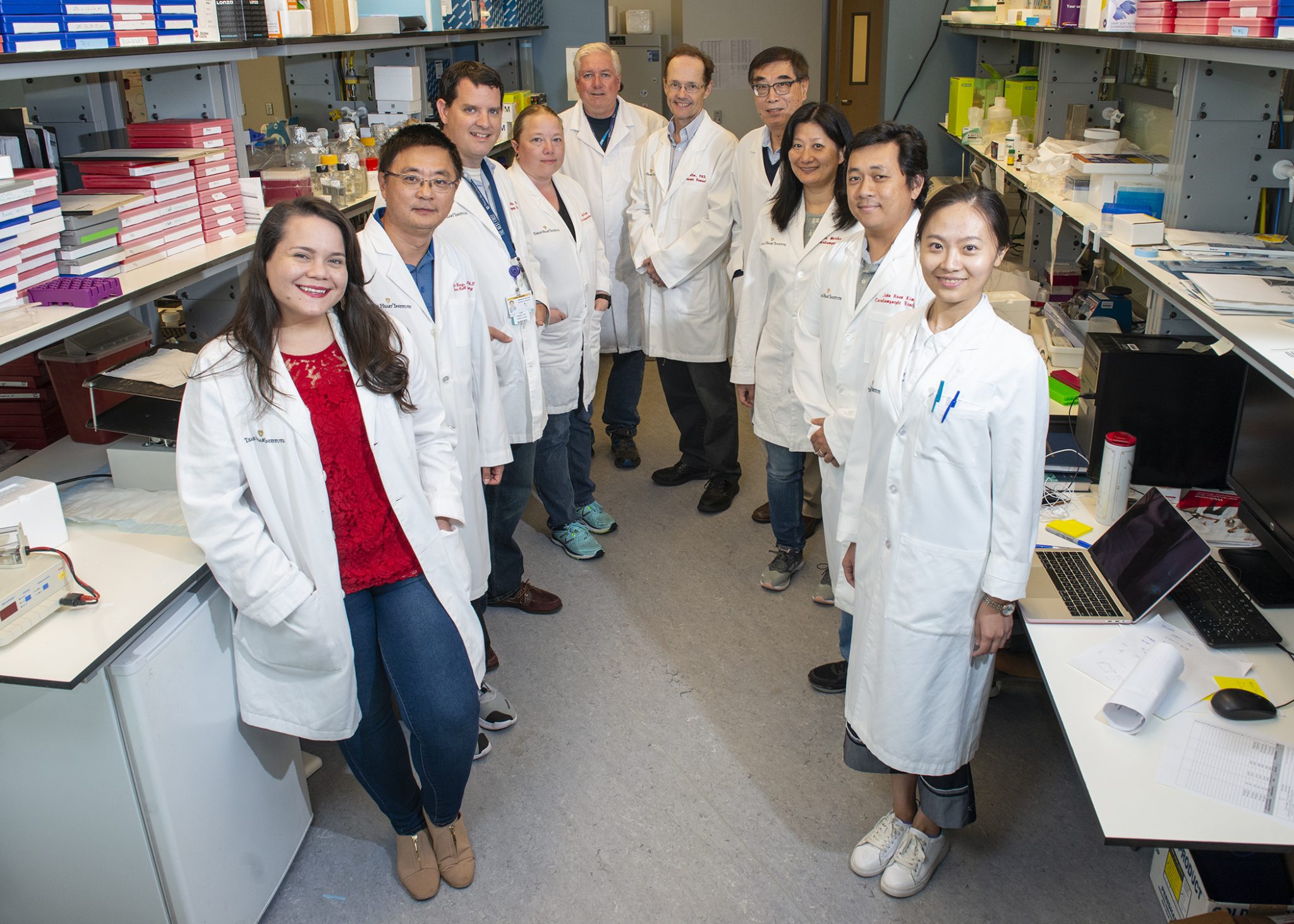Dr. Jim Martin, director of the Cardiomyocyte Renewal Lab (CMRL), is hard at work unraveling the genetic pathways that are involved in tissue regeneration, particularly, the regeneration of heart muscle cells (cardiomyocytes). His lab is using their research findings to develop new treatments for heart disease as heart failure is the number one cause of death in this country.
Many individuals have diseased coronary blood vessels that become blocked, triggering a massive loss of cardiomyocytes, which in turn, causes scar tissue to form in the heart. The result of this process is a loss of the heart’s ability to pump or heart failure. Imagine, if you could, actually making parts of the heart regenerate? What a revolutionary shift that would cause in treatment strategies. The heart has the capacity to regrow in lower vertebrates like the zebrafish, so why not in humans?
Humans are born with half of the heart muscle cells they will ever have, and the rest are generated at a very slow rate later in life. In young people, the growth rate of cardiomyocytes is 1% per year and declines to 0.4% by the age of 75 years. This slow generation is due in large part to a critical molecular pathway called the Hippo pathway. Dr. Martin and his team believe this pathway holds the key to the genetic gate.

Hippo Pathway: Gatekeeper to Growth
The Hippo pathway acts as a built-in “stop signal” that slows or inhibits the proliferation of heart muscle cells (cardiomyocytes) as a way to control the growth rate and size of the heart. After making this seminal discovery, Dr. Martin’s team set out to investigate what would happen if they turned this inhibitory pathway off completely.
Building on work from previous studies at the Texas Heart Institute (THI), Dr. Martin, in collaboration with Dr. Emerson Perin and the late Dr. James Willerson, have transitioned from studying the Hippo pathway in mice to larger animals. In a pig model of myocardial infarction (heart attack), they found that inhibiting the Hippo pathway substantially improved cardiac function. These impressive results have led to an early-stage biotech company called Yap Therapeutics that THI is developing via venture capital to fund and progress the study into human clinical trials.
Cardiomyocyte Renewal Lab Agenda
The lab’s primary goal is to translate their studies into humans with heart failure by dissecting the Hippo pathway in greater depth. Understanding this pathway will lead to better and more specific therapies. In addition, a new exciting venture has been started called the McGill gene editing laboratory. The goal of this lab is to treat heart disease by using gene editing—a cutting-edge research technique that allows investigators to alter DNA at a specific location in the genome. A Nobel Prize was awarded last year for strides made in this ground-breaking area of research.
Dr. Martin and his team are leading the way to find innovative ways to treat heart failure, from Hippo pathway research to gene editing. The future of cardiac therapy could not be more promising for THI.





